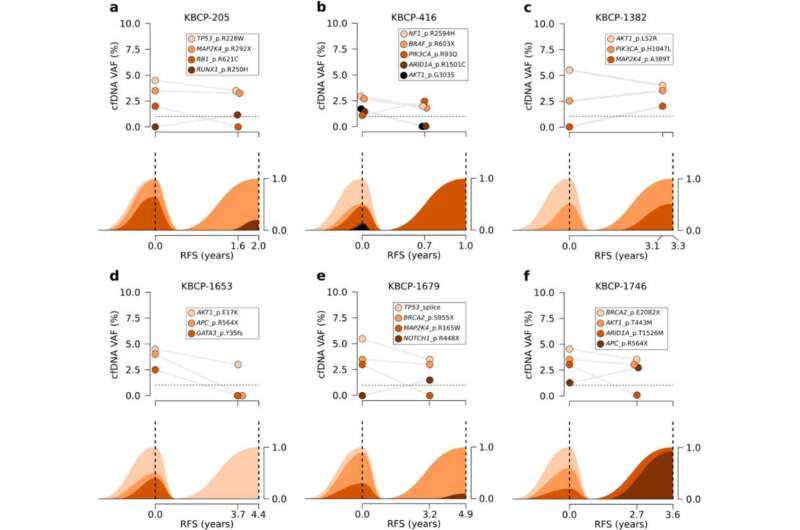Liquid biopsy offers new tools for detecting recurrent breast cancer and monitoring its progression

Liquid biopsy performed on serum samples taken from breast cancer patients can provide increasingly accurate information on cancer progression and enable earlier detection of cancer recurrence, a new study from the University of Eastern Finland and Kuopio University Hospital shows. The findings were published in Cancers.
Intratumoral heterogeneity is a major challenge for cancer treatment
Breast cancer tumor cells are known to differ in both genetic and biological properties. This phenomenon is known as intratumoral heterogeneity. From the perspective of cancer treatment, intratumoral heterogeneity is a major challenge because cancer cells with different biological properties may have a different response to treatment.
It is possible that some cancer cells tolerate treatment well enough to survive, which can lead to recurrent breast cancer later on.
"Time is a key factor in intratumoral heterogeneity. Over time, the spectrum and properties of cancer cells tend to change and develop in a direction that is more therapeutically challenging," Doctoral Researcher Jouni Kujala from the University of Eastern Finland says.
"In addition, tumor samples are representative at the time of sampling only, and intratumoral heterogeneity cannot really be monitored much after sampling."
Liquid biopsy opens up new possibilities for detecting cancer mutations
Liquid biopsy that utilizes biomarkers released by cancer cells has been proposed as a possible method for the early detection of recurrent breast cancer, and for the monitoring of cancer progression. A major advantage of liquid biopsy over traditional tumor biopsy is the ease, safety and repeatability of sampling.
In particular, liquid biopsy focuses on cell-free DNA released by cancer cells, which is known to carry mutations characteristic of the cancer tumor. This has enabled a new way of detecting cancer mutations without having to do a biopsy of the cancer tumor itself.
"Our results show that liquid biopsy can be used to detect cancer mutations both from breast cancer tumors and their metastases. This provides further support for our hypothesis that liquid biopsy can, at least to some extent, be used to overcome the limitations of traditional biopsy."
Toward earlier diagnosis and more accurate clinical picture
The researchers observed mutations characteristic of recurrent breast cancer in cell-free DNA months before the recurrent cancer was detected during a medical examination. With the mutations observed, the researchers were also able to assess changes in intratumoral heterogeneity, and to establish a more accurate understanding of the clinical picture.
"By monitoring the cancer mutations detectable from cell-free DNA, it is possible not only to detect recurrent breast cancer but also to identify mutations that are relevant to treatment planning and thus to support medical professionals' decision-making," Professor Arto Mannermaa from the University of Eastern Finland explains.
"Based on our results, liquid biopsy is a promising method that can supplement the information obtained using traditional diagnostic methods, and it can provide increasingly accurate information on the development and recurrence of breast cancer."
More information: Jouni Kujala et al, Circulating Cell-Free DNA Reflects the Clonal Evolution of Breast Cancer Tumors, Cancers (2022). DOI: 10.3390/cancers14051332


















